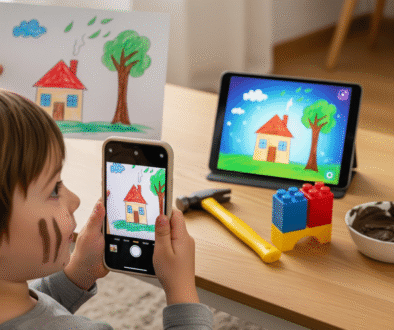
A Mother’s Truth: Why Keeping Promises to Your Child Matters
Being a parent sometimes feels like walking a tightrope over a pit of Legos—one wrong step, and the pain is real. And trust? Trust is the safety net beneath you, catching your child when life wobbles. But what happens when that net has holes? When promises become empty words? Well, let’s just say, rebuilding trust is a lot harder than keeping it in the first place.
When my child was small, I realized that my words weren’t just sounds; they were promises. And breaking them—whether big or small—was like popping the balloon of trust I had so carefully blown up. If you’re a parent (or about to become one), let me share some hard-earned wisdom about why keeping your word matters more than you think.
The Little Lies We Tell Without Thinking
Ah, the classic parenting fibs: “The shot won’t hurt!” or “This medicine tastes great!” Meanwhile, your kid’s taste buds are experiencing what can only be described as liquid betrayal. Sure, we mean well, but every little lie chips away at their trust in us.
I took a different approach. Instead of sugarcoating, I prepped my kids with honesty: “Yep, the shot will sting, but it’ll be over before you know it.” Or, “This medicine isn’t the best tasting, but it’ll help us get back to our adventures faster.” And you know what? It worked. No meltdowns, no unnecessary fear—just a bit of wincing and then moving on.
Even when they were babies, I made dentist visits fun—no scary surprise drills, just an adventure exploring the big chair and the cool little mirror. Doctors explained things honestly, and my kids learned that medical visits weren’t terrifying. Turns out, when you don’t set them up for a surprise betrayal, they actually trust the process.
The Trap of Conditional Love
Then there’s the sneaky way we sometimes tie love to behavior. “You’re such a good girl!” sounds innocent, but what about when they’re having a bad day? Does that mean they’re not good?
Kids shouldn’t have to perform for love. Instead of “Be good, and I’ll love you more,” or “Behave, and you’ll get this,” I swapped it out for, “I love how kind you were just now,” or “I saw how hard you worked on that—amazing job!” That way, they knew my love wasn’t a prize to be won; it was their foundation.
I also made sure my child understood that emotions—whether anger, sadness, or frustration—don’t change my love for them. If they made a mistake, I addressed the action, not their worth: “Not cleaning up made me upset,” or “The way you spoke to me hurt my feelings.” But I always followed with, “I love you no matter what. I’m always here for you.” Mistakes are part of life, and learning from them is what truly matters.
Consistency is Everything
Few things are more crushing to a child than, “We’ll go to the park after lunch,” only to hear, “Oops, never mind.” I did it once. The look on my child’s face was all it took for me to change my ways.
From that day forward, I stuck to my word like glue. If I made a promise, I kept it—even when it was inconvenient. And if something truly made it impossible? I explained, “I know I said we’d go, but I made a mistake. I’m too tired today, and I’m really sorry. We’ll go tomorrow instead.”
Kids understand more than we think. They don’t expect perfection, but they do expect us to mean what we say.
Let’s Stop Dangling Carrots
It’s easy to slip into bribery mode. “Finish your food, and I’ll get you a toy.” “Behave, and you can stay up late.” Sounds like an easy fix, but what happens when the prize never comes? You’ve just taught them that words don’t mean much.
Instead, I learned to shift the focus: “Eating well helps you grow strong.” Or, “Let’s clean up together so we can enjoy a nice, tidy space.” Rewards aren’t bad, but they shouldn’t replace the lesson itself.
Don’t Sneak Out—Say Goodbye Properly
One of my biggest parenting pet peeves? When adults sneak out of the house to avoid their child crying. The other caretaker distracts them, and suddenly—poof!—the parent is gone. I was always against this, and I never did it. Something deep inside me just knew it wasn’t right.
Instead, I always told my children where I was going, why I was going, and when I’d be back. “I’m leaving now, but I’ll be back when the little hand on the clock is here.” I never pretended it was easy, and I acknowledged their feelings: “I know you feel sad, and I don’t like seeing you sad either. But I’ll be back soon, and I’ll be thinking about you the whole time.”
You know what? My kids never threw a fit when I left. Not once. Because they knew I’d keep my word, and they trusted me to return.
Build a Relationship, Not Just Rules
Parenting isn’t about being a rule enforcer—it’s about building trust. And trust doesn’t happen overnight; it’s built through a hundred tiny moments of honesty, consistency, and follow-through. When kids know they can rely on you, they carry that belief into every part of their lives.
So whether it’s a promised trip to the park, a tough conversation, or simply being upfront about an unpleasant doctor’s visit, choose truth. Show them that while life isn’t always painless, it’s always better when we face it together—with honesty, love, and trust. Because at the end of the day, isn’t that what we all want?


